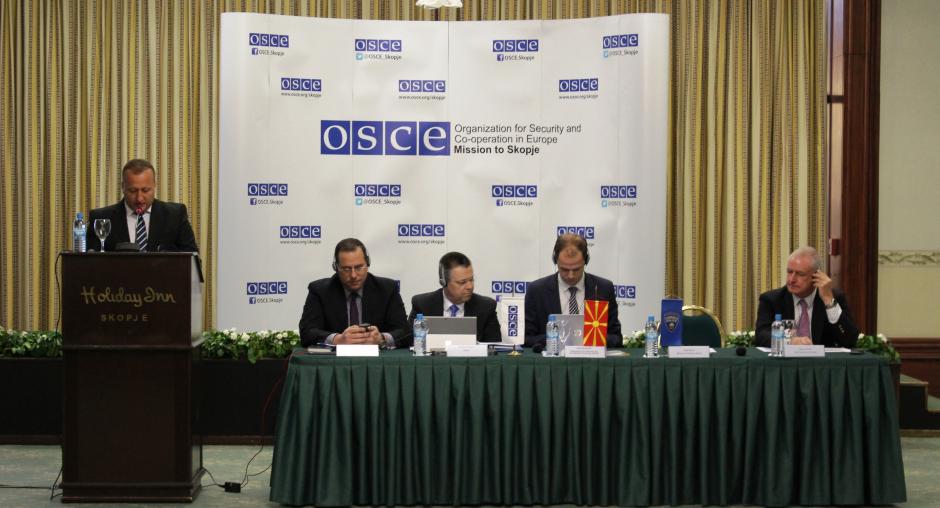OSCE organizes national table-top simulation in Skopje on protecting critical energy infrastructure from terrorist attacks focusing on threats emanating from cyberspace

Strengthening protection and preparedness against terrorist attacks aimed at industrial control systems is the focus of a table-top simulation held in Skopje on 27 and 28 March 2017. Twenty-six experts from different state authorities and private sector representatives, such as operators, providers and owners, are participating in the national exercise organized by the OSCE Transnational Threats Department with the support of the OSCE Mission in Skopje.
During the table-top simulation, participants will be able to test the effectiveness of their existing protection and crisis management systems, including co-ordination with external crisis management mechanisms. The simulation also aims to further improve partnerships between the public and private sectors to ensure the better protection and higher resilience of the national energy infrastructure.
“Today, cyberterrorism as a means of achieving political and economic goals through the use of information and communications technology is growing into a leading threat for countries’ security, both at the national and global levels,” said Minister of Internal Affairs, Agim Nuhiu, who addressed the national cyber experts at the opening.
Steven Davis, Head of the Public Security and Community Outreach Department at the OSCE Mission to Skopje, said: “The OSCE exercise aims at providing a hands-on experience of the vulnerabilities of non-nuclear critical energy infrastructure to terrorist attacks emanating from cyberspace and advancing the national capacity to respond to such attacks.”
This table-top simulation is part of a series of national exercises developed by the OSCE Transnational Threats Department for OSCE participating States, based on its Good Practices Guide on Non-Nuclear Critical Energy Infrastructure Protection from Terrorist Attacks Focusing on Threats Emanating from Cyberspace.
